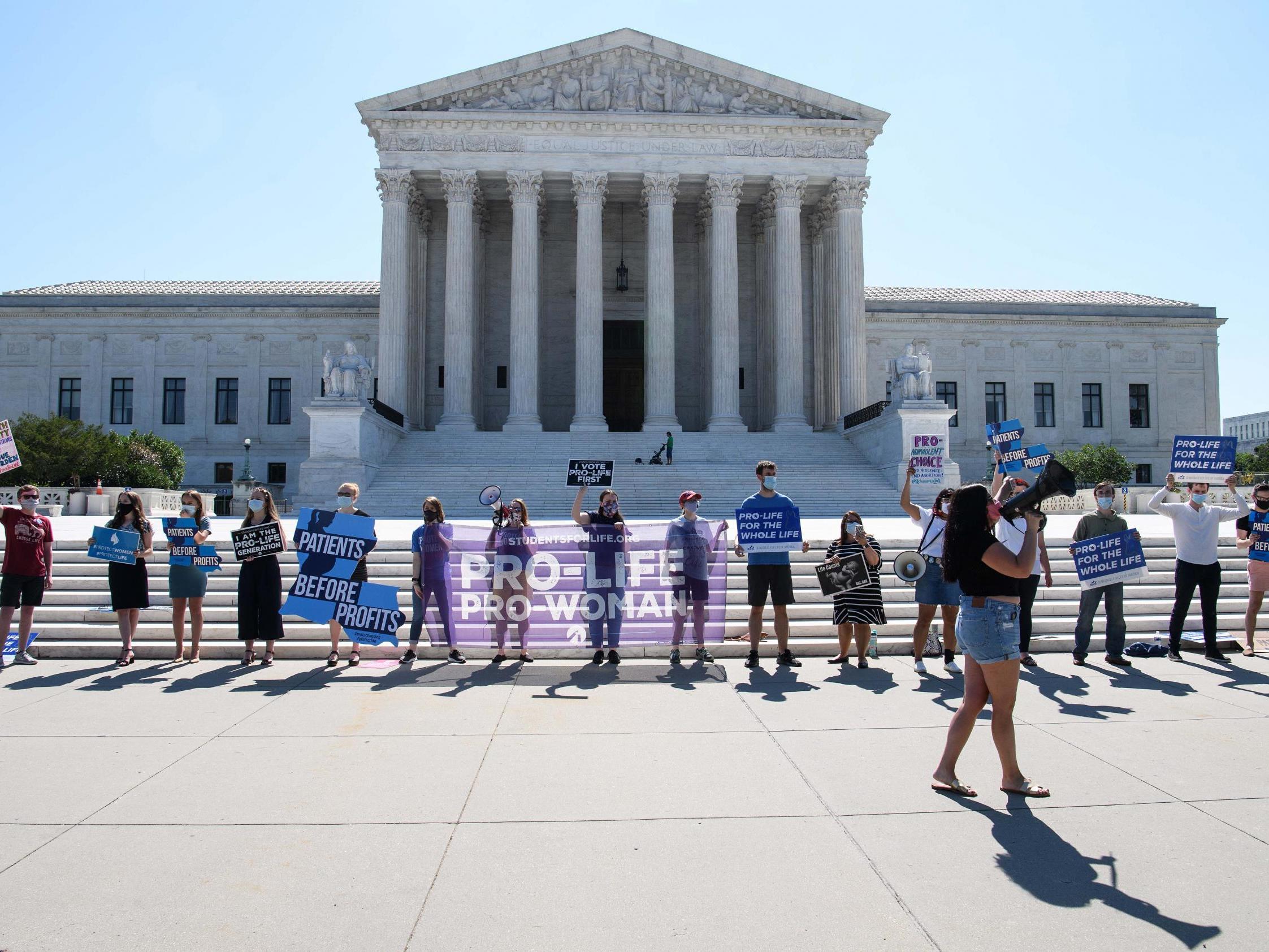Supreme Court blocks controversial Louisiana abortion law which would have closed clinics
Justice John G Roberts joins the liberal justices in the 5-4 ruling

Your support helps us to tell the story
From reproductive rights to climate change to Big Tech, The Independent is on the ground when the story is developing. Whether it's investigating the financials of Elon Musk's pro-Trump PAC or producing our latest documentary, 'The A Word', which shines a light on the American women fighting for reproductive rights, we know how important it is to parse out the facts from the messaging.
At such a critical moment in US history, we need reporters on the ground. Your donation allows us to keep sending journalists to speak to both sides of the story.
The Independent is trusted by Americans across the entire political spectrum. And unlike many other quality news outlets, we choose not to lock Americans out of our reporting and analysis with paywalls. We believe quality journalism should be available to everyone, paid for by those who can afford it.
Your support makes all the difference.The US Supreme Court has struck down a restrictive Louisiana abortion law in a monumental ruling, a victory for abortion rights advocates.
If the court had upheld the Louisiana law, it would’ve required for abortion clinic doctors to get privileges at a local hospital – a requirement that would’ve strictly limited the number of abortion clinics available in the state.
The 5-4 decision in the conservative-run court involved Chief Justice John G Roberts joining the four liberal judges as the crucial deciding vote.
Justice Roberts, who’s previously dissented against abortion-rights cases when brought to the court, said he was bound to a 2016 Supreme Court decision in Texas.
The case in Texas was nearly identical to Louisiana’s with a hospital admitting privileges law that would’ve shut down about half of the state’s abortion clinics. Blocking the law in 2016 set a precedent in the court for similar future laws, a precedent the chief justice upheld in the 2020 ruling despite previously dissenting the 2016 case.
At the time, the courts said it was an "undue burden" on patients to uphold the Texas law.
Justice Stephen Breyer penned the majority opinion, writing the majority “consequently hold that the Louisiana statute is unconstitutional”.
In a separate concurring decision, the chief justice wrote: "The Louisiana law imposes a burden on access to abortion just as severe as that imposed by the Texas law, for the same reasons. Therefore Louisiana's law cannot stand under our precedents."
Supporters of the Louisiana law said it protected the health and safety of women seeking abortions by requiring an extra step by doctors that would ensure their competence in performing the procedure. But opponents have said that although hospitalisations following an abortion are rare, if they occur a woman would not find herself unable to seek hospital admission whether the performing doctor had privileges or not.
Only two Louisiana doctors of five who perform abortions currently have admitting privileges at hospitals: one in New Orleans and the other in Shreveport. But the Shreveport doctor testified he would be unable to run his clinic alone, thus leading to potentially only one abortion clinic in the entire state had the law passed.
The ruling comes as reproductive rights groups have worried a conservative-stacked court could lead to the overturning of Roe v Wade, a landmark 1973 court decision protecting a women's right to an abortion, as more states introduce restrictive abortion laws. President Donald Trump was able to sway the court in a more conservative direction by appointing two justices to the court.
Louisiana's abortion law, first enacted in 2014, was the first abortion case the Supreme Court has ruled on since Mr Trump's appointment of two justices.
Justice Roberts siding with the liberal justices on the argument of precedent set by past rulings could indicate to Republicans they might need another conservative justice on the court before Roe v Wade could be overturned.
The chief justice lately has sided with the liberal justices on multiple monumental rulings in recent weeks. He previously sided with the liberals on a ruling that extended anti-discrimination privileges to LGBTQ workers and upheld a program protecting undocumented immigrants who came to the US as children.
Join our commenting forum
Join thought-provoking conversations, follow other Independent readers and see their replies
Comments